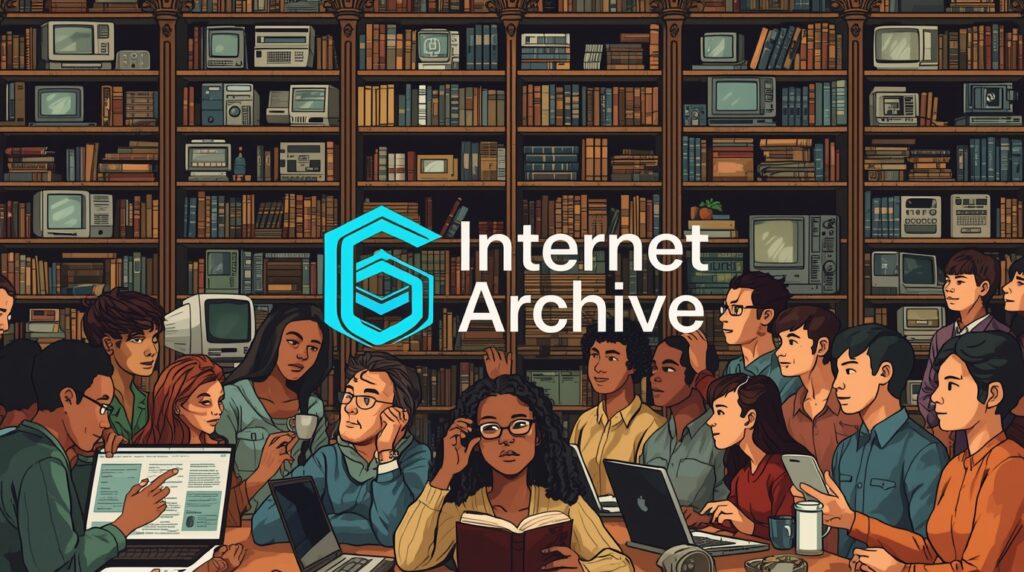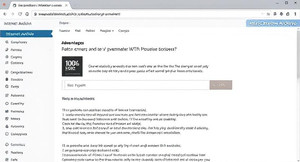Millions of websites, photos, and videos are made—and removed—every day in the rapidly evolving digital world of today. What if all of this digital data could be permanently stored? The Internet Archive does just that. It serves as a digital library, preserving and archiving enormous volumes of internet data so that our digital past is never lost. One of the most useful resources available in 2025 is the Internet Archive, regardless of your role—researcher, student, blogger, or inquisitive learner.
The Internet Archive: What is it?
Brewster Kahle established the Internet Archive, a nonprofit digital library, in 1996. Its goal is straightforward but effective: to make all knowledge accessible to everyone. Digital content, such as websites, books, videos, music, and software, is gathered and preserved by the platform. Imagine it as a huge time machine that lets you go back in time and see the web as it was years ago.
The Wayback Machine, which allows users to view snapshots of websites from various points in time, is one of its most well-known tools. You can now see how your favourite websites appeared ten or even twenty years ago!
The Significance of the Internet Archive
Digital information that might otherwise be lost forever is preserved in large part by the Internet Archive. Links break, accounts are closed, and websites are removed, but the Internet Archive maintains copies of all of this data. This matters for a number of reasons:
- Digital History: It records significant online occurrences and protects the development of the internet.
- Education and Research: Old publications, websites, and study software are available to students and researchers.
- Free Knowledge Access: The public has free access to millions of books, music recordings, and films.
- Digital art, journalism, and cultural documents that influence human history are all protected by cultural preservation.
To put it briefly, the Internet Archive makes sure that information is accessible to all, even after it has been removed from its original source.

The Internet Archive: How to Use It
The Internet Archive is easy to use and totally free. Here’s how to maximise it:
- Go to archive.org to access the website.
- Search the Collection: To locate books, films, websites, or software, use the search bar.
- Investigate the Wayback Machine: To view previous iterations of a website, enter its URL in the Wayback Machine.
- Download Free Media: Get free public domain audiobooks, eBooks, films, and music.
- Upload and Share: In order to preserve your own digital files for future generations, you can also upload them.
Anyone can easily explore the world’s digital history thanks to the user-friendly interface.
The Internet Archive’s advantages
In 2025, the Internet Archive will be an indispensable resource due to the following notable advantages:
- Free Entry: No payment or subscription is necessary.
- Millions of media files and billions of web pages make up this enormous database.
- This educational resource is ideal for historians, educators, and students.
- Permanent Preservation: Prevents the permanent loss of digital content.
- Open Source: Promotes openness and information exchange.
The Internet Archive offers something for everyone, whether you’re tracking an old website, looking at previous studies, or just enjoying old media.

The Internet Archive in 2025 and Later
The Internet Archive is dedicated to growing its holdings and enhancing accessibility as technology advances. By 2025, it’s more than just a location for digital preservation; it’s a movement to safeguard knowledge from around the world. The platform is investigating novel approaches for archiving AI data, social media content, and even virtual experiences.
The Internet Archive serves as a ray of truth and continuity in the face of growing disinformation and data loss. Its efforts guarantee that the knowledge of today can be passed down to future generations without fear.

Concluding remarks
The Internet Archive is a steward of digital history, not just a website. It embodies the best qualities of the internet: open, educational, and timeless. It does this by providing free access to millions of resources and saving forgotten web pages.
Using the Internet Archive in 2025 and beyond is about safeguarding our collective digital future, not just about learning about the past.





